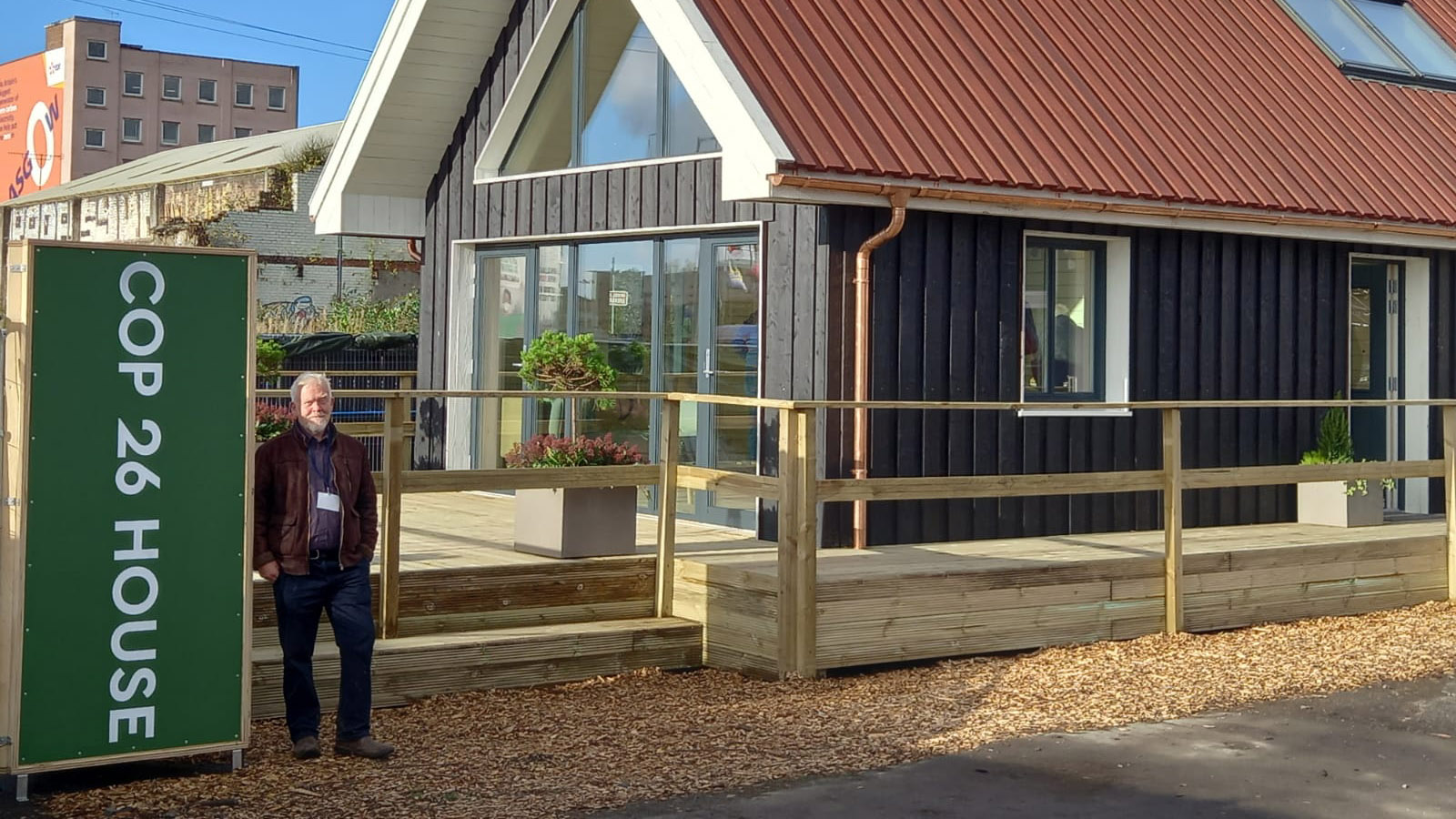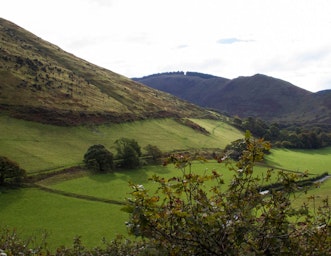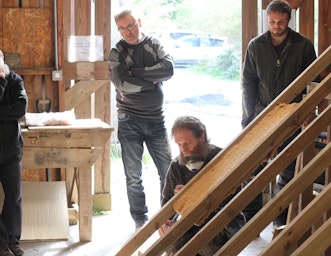
After two weeks of discussion, debate and protest, we asked some of those who were in Glasgow for their thoughts on COP26. Some chose to take an initial look at the Glasgow Climate Pact, adopted after intense negotiations from the nearly 200 countries in attendance, while others highlighted some of the inspirational events they attended. In this first part we hear from our Zero Carbon Britain team.
You can read an overview of the decisions, agreements and deals reached at COP26 on our recent blog.
Paul Allen – Knowledge and Outreach Coordinator
The Glasgow Climate Pact is the first UNFCCC agreement that openly sets out to reduce coal. But a key role of COP26 was for each country to increase their pledges or Nationally Determined Contributions (NDCs) in line with limiting temperature rise to 1.5°C –this was not achieved.
In the run-up to COP26, the science made it clear that the impacts will be much greater at 2°C warming than 1.5°C. To limit global heating to 1.5°C, the world needs to half its projected emissions by 2030, from 52.4Gt to 26.6 Gt. Even if successfully delivered, the COP26 NDC pledges would only achieve a reduction to around 41.9 Gt by 2030.
In light of the evidence of the climate science, all governments need to urgently reconsider their NDCs and embed them in immediate-term plans, policies and actions. Countries need to move from tweaking business as usual to emergency mode, and they must come back in 2022 with radically increased commitments.
Making this transition in a just and fair way is vital. As nations across the globe close coal, they must be supported to leapfrog directly to clean renewables and avoid a move to slightly less polluting fossil fuels, like gas. Wealthy developed countries must significantly increase the finance available to support this majority world transition. Until we achieve a just transition away from fossil fuels, there is no cause for celebration.
Whilst I was deeply disappointed by the NDC outcomes, I was also encouraged by the amazing people that travelled long and hard to get to Glasgow to push for action and justice. Groups showed their brilliant dedication within the official COP negotiations, the Green Zone, the People’s Summit events, and the incredible march of around 100,000 people in the rain on 6 November. Many walked and cycled to Glasgow, many came to represent indigenous cultures, and many struggled to get their voices heard in the negotiations. We must keep up the momentum and focus on bringing the necessary solutions to life.

Dr Anna Bullen – Innovation Lab Manager
People keep asking me “How was COP?”, but I have found responding difficult because it was many things all at once, with moments of hope followed by moments of despair. The final agreement is disappointing and leaves me unsettled and unsure of where to go next. I have lost (even more) faith that world leaders can get us on track for 1.5°C, and am battling a deep fear that capitalism and corruption will bring about the death of our planet (or, more likely, the people on it).
I am tormented by the words of Aminath Shauna, the Maldives Minister of Environment, Climate Change and Technology, who described COP26 as “our lifeline”. I wonder how she and the people of the Maldives are feeling now (I suspect scared and vulnerable).
But, in amongst this torment and despair are also the memories of some truly inspirational people. This includes my fellow panellists from the Welsh Government session on Distributed Leadership, whom I felt truly humbled to sit alongside: Lord Deben, Chair of the Climate Change Committee, for his calm and collected approach; Poppy Stowell-Evans, Youth Climate Ambassadors for Wales, for her pure passion, intelligence and determination; and Mark Drakeford, First Minister for Wales, for his absolute belief in the importance of distributed leadership and for admitting he did not have all the answers but had come to COP26 to learn.
So, where does that leave me? I feel it is time to take a moment (a short moment, given the emergency) to step back and think about the best way forward and ask some simple but key questions. Who should we be working with? How can we have the greatest impact? Where should our focus be? And in my moments of despair, I will remember how I felt as part of the 100,000-strong march on 6 November and how the strength, collaboration and determination of those people filled my heart with hope.

Amanda Smith – Training Manager
Alongside the discussion and debate, there is a whole other side to COP. The opportunity to hear and learn from others across the globe, especially those on the frontline of the climate crisis, is unrivalled. Hearing their stories and the work they are doing gives a sense of the scale of the problem that we all face, but also of the response needed.
We heard and saw examples of leadership at all levels, of people, communities, organisations and governments stepping up. A shared sense of purpose, responsibility, leadership, and urgent calls to action. And, most importantly, hope.
We need to raise ambition, to take the action needed to address the climate and biodiversity emergency, to continue the pressure on governments to meet and exceed their targets, and take the steps needed to keep global warming below 1.5°C.
The experience of COP is hard to put into words. Whatever I think of the outcome, it was a privilege to be part of this process. I have felt disorientated, inspired, emotional, motivated, terrified and overwhelmed in almost equal measure. One moment that will stay with me is the little boy from a school in Liverpool who presented seeds grown in the school garden to the President of Costa Rica – seeds of hope. We must keep hope, and that shared sense of purpose was there in Glasgow last week, alive.
There were many moments at COP which were positive and felt as though they would lead to the necessary action. But there was also a great sense of injustice and a clear and urgent need for stronger commitments in response to climate science. I believe that a solution is possible. I hold onto hope for my children and for the generations to come. I remain stubbornly optimistic.

- Zero Carbon Britain
- Climate Change
Related Topics
Related Pages
Related news


CAT Conversations: Sandy Stevens, CAT graduate
17th April 2025
CAT stories – Nick Parsons and Mike Russell
29th January 2025
‘The finance COP’
29th November 2024EMAIL SIGN UP
Keep up to date with all the latest activities, events and online resources by signing up to our emails and following us on social media. And if you'd like to get involved and support our work, we'd love to welcome you as a CAT member.
